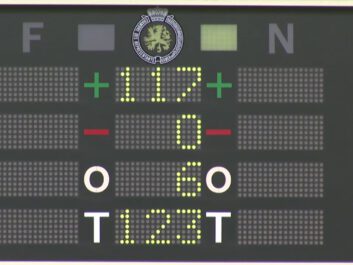Belgium – New Gender Recognition Law With Obstacles

Today, the Belgian Parliament approved a reform bill to the Belgian gender recognition law with 117 votes and 6 abstentions.1The reform bill does away with all medical elements. While TGEU considers the reform to be progress, unnecessary hurdles remain.
The reform is a step forward from the current situation; sterilisation and a mental health diagnosis are no longer requirements for legal gender recognition. However, the need for a waiting period, age limits, as well as the fact that the bill does not address healthcare provision and non-discrimination, has left civil society from across Belgium rather unsatisfied. Civil society actors fear that once the requirement of sterilisation is removed, lawmakers will not be motivated to touch the bill again and work for real self-determination without obstacles.
TGEU calls on lawmakers to continue working on the law, in close collaboration with civil society. Expertise and feedback should be sought to bring the procedure closer to the highest standards of quick, accessible and transparent gender recognition procedures, based on self-determination.
TGEU’s Senior Policy Officer Richard Köhler comments: “The reform bill follows the European Court for Human Rights decision, just last month, to prohibit sterilisation requirements in legal gender recognition. While it is a step forward, we hoped for a better solution considering Belgium’s strong tradition to uphold human rights and equality for all.”
The draft law foresees that after an adult applies to civil service stating the long-term conviction of their gender identity, they receive information about the process and legal consequences. There is a waiting period of three months, and applicants need to declare that they are aware of the legal consequences of the change of their gender marker.
TGEU’s Executive Director, Julia Ehrt adds, “The waiting period prolongs the procedure unnecessarily. It is brought in to “prevent abuse”. This shows a lack of understanding and a mistrust of trans people, who are the ones often suffering from accused identity fraud when documents and gender expression do not match. Respect for gender identity, and self-determination are not reflected in gender recognition laws which rather focus on preventing abuse.”
Köhler affirms, “We also call for the age limit to be re-evaluated and dropped. Gender identity knows no age limits, and many young trans people will suffer with the current limitation.”
Minors from age 12 will be able to bring their name in accordance with their gender identity. From 16 years a minor can apply for a change of gender marker, requiring the support of parents (legal guardians) and a personal statement. The case of unconsenting parents is not regulated. A youth psychiatrist’s statement has to confirm that the decision has been taken freely and without any outside pressure. It is supposed to not judge or diagnose the person’s gender identity.
- Minister of Justice & State Secretary: https://www.koengeens.be/news/2017/05/09/zelfbeschikking-centraal-in-nieuwe-transgenderwet ↩︎